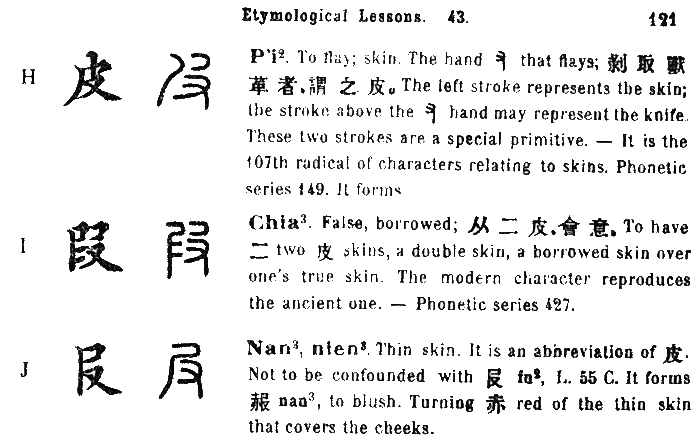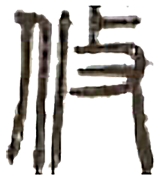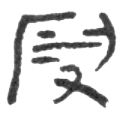I Ching, Yijing or Zhou Yi
"Oracle of the moon": © 2000 LiSe
 Yi Jing, Oracle of the Moon
Yi Jing, Oracle of the Moon

Yóng - presence, devotion 
Hexagram 20, judgment
觀盥而不薦。有孚顒若。
Wilhelm: CONTEMPLATION.
The ablution has been made,
But not yet the offering.
There is sincerity, they look up to him.
(There is sincerity like awe)
Ritsema and Karcher:
Viewing: hand-washing and-also not worshipping.
Possessing solemn sincerity.
'Solemn", usually translated as "look up" or "presence" is yóng.



Yóng is composed of two parts, at left 1: picture of (spider-)monkey. Meaning: use continually, benevolent. Part 2: figure with big head (could it be an animals mask of a Wu?)
At right the modern way of writing yong.

'benevolent'

'availing of'
But the old character of the left part yong “use continually, benevolent” (Ricci 13020) looks like the character yong, “availing of” (Ricci 13019, picture of a tripod) with an extra addition at the top. Seems to me more likely than a monkey. The meanings all have to do with continuality, totality or something close to it. Yongyong: use continually. Yongge: a tripod which is continually in use. Jinyong: bronze heads which cover both extremities of an axle. Yonghui: show benevolence. Yongdong: use until the end of the defined period. Yongyong: give all one's efforts. Yongzhi: attained maturity of spirit.
In 37 line 5, and in the image of 45, 55 and 59 jiă is usually translated as 'to near'. See Harmen's article (Dutch) for another option. The king does not near the temple, but serve it!
Ritsema/Karcher has "imagine". Wenlin: originally "two" + "skin": second (false) skin. "Person" was added later.
Meanings of jiă: false; fake; phony; artificial.〈Law〉conditional; tentative. Borrow; avail of. If; supposing.
Jiă dào is via, by way, jiămíng is pseudonym (like a second skin).
Harmen translates more like “lend itself, in the place of, put into service”.
Jià (different pronunciation): holiday, leave of absence, furlough.

Above: from Wang Hongyuan "The origins of Chinese characters", Sinolingua Beijing, 1993.
Jia: false, to borrow. Two hands obtaining ore from a quarry. According to most other sources, the left part means double skin.
Below: from Wieger "Chinese characters", 1924.
Jia is
lesson 121. Chia3: false, borrowed, to have two skins, a double skin.


'有攸往 yǒu yōu wǎng (have place toward) means one has a direction and follows the path to get there. Before a verb it turns it into a noun, giving it 'substance'. You wǎng: a go - a place to go. You ha: a like - what one likes or loves.
The continuous flow of the water, "walking water", makes the river
a river, a noun. Stagnant water is not a river. Moving like flowing water is a sign of knowing where one goes. One of yōu's meanings is 'knowing'. (yǒu and yōu are two different words, different pronunciation, tone 1 and tone 3)
A place to go is a decision, a direction, not something which just happens.
moves leisurely, like water flows, probing the flow with a stick. OR: having a place to go, to move elsewhere. Harmen: go far)
beforehand delusion afterwards acquire. (迷 lose the ability to distinguish and judge, confused)
Or: moving leisurely, like water flows, probing the flow with a stick. Or to move elsewhere. Harmen: go far.
